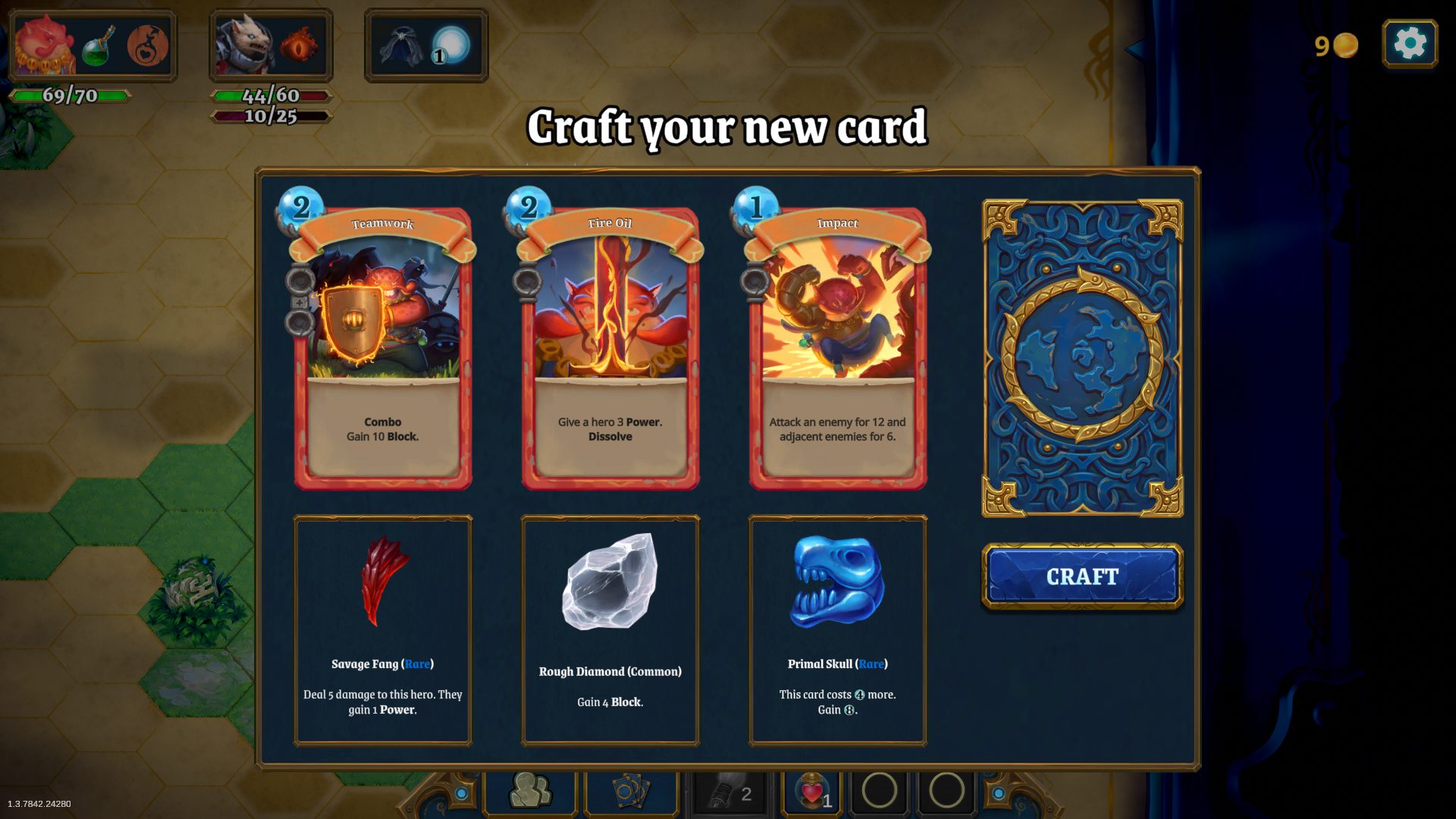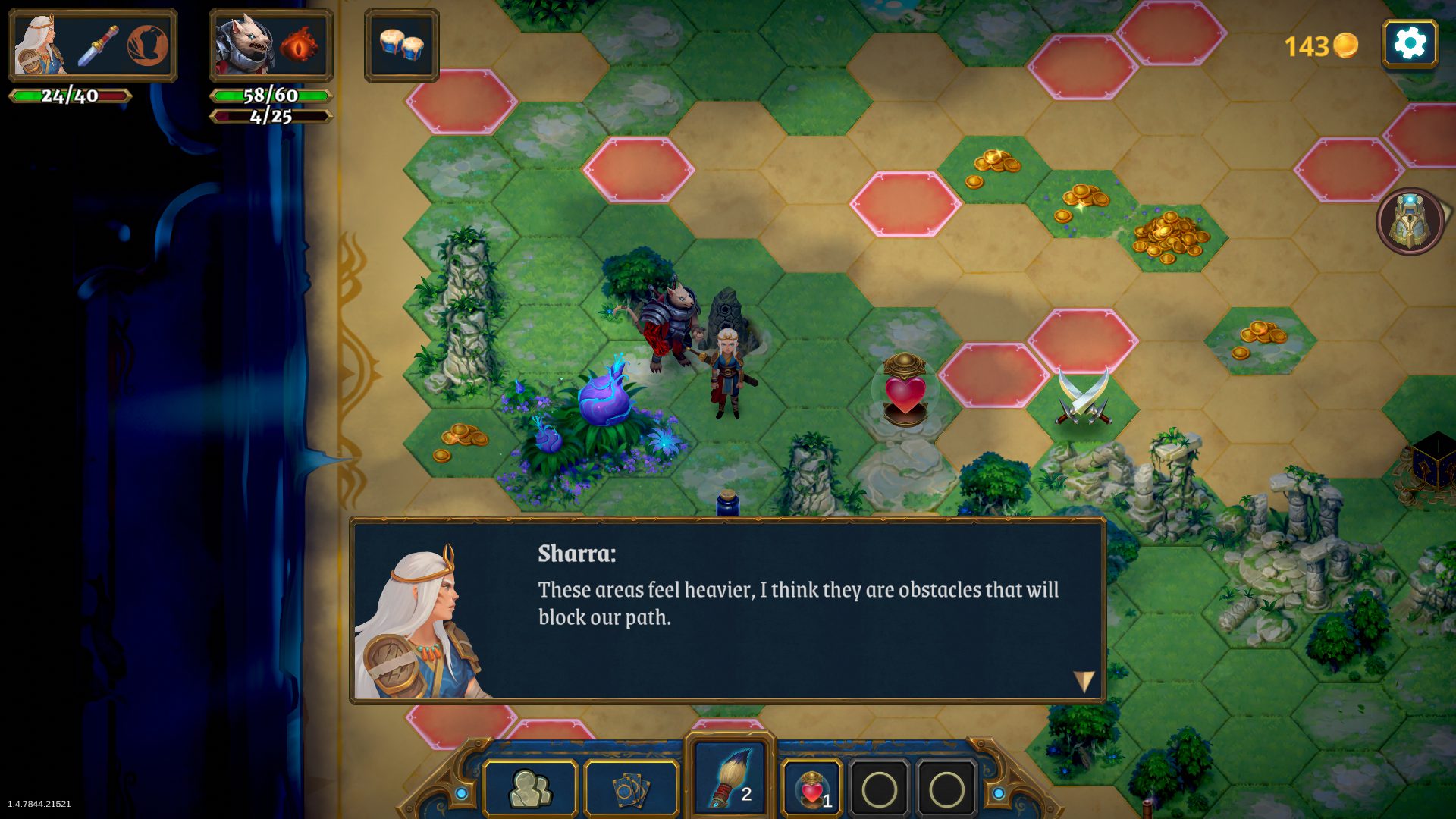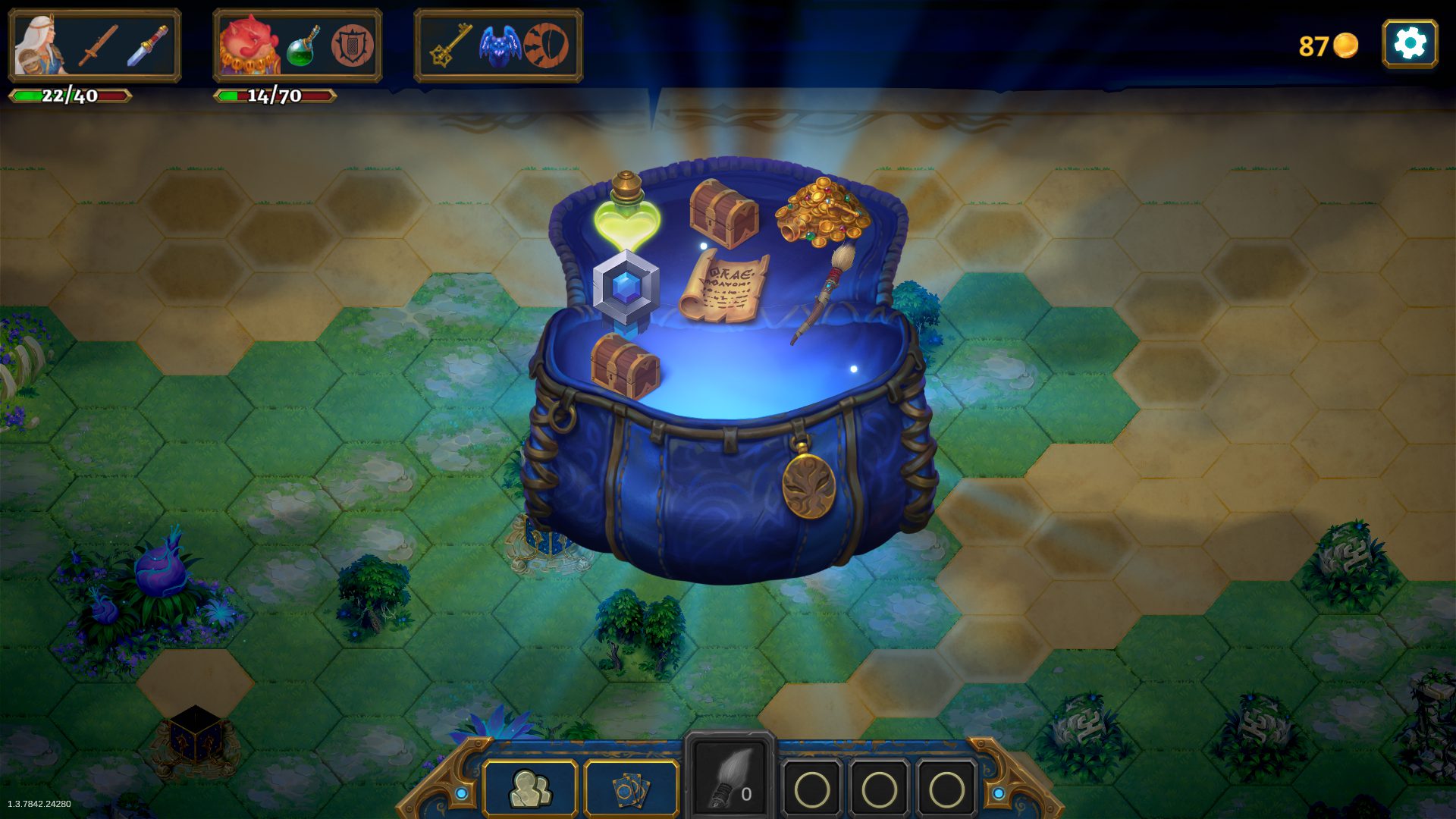Roguebook — Just Another Fantasy Tale
As someone who hasn’t dived into the roguelike, deck-builder fad, I was eager to see what all the fuss was about. Right off the bat, Roguebook made a good first impression on me and I was quite impressed with my first few hours.
First off, Roguebook wastes no time getting you into the action. Upon starting the game, a quick cutscene sets the scene before dropping you in and introduces you to your guide Naddim who quickly gets you up to speed. In terms of plot, that takes maybe five seconds.
Your heroes have been trapped inside the Roguebook with no knowledge of how it happened, and now they aim to discover why and escape. That’s about it. It does feel like a missed opportunity to give the game some more wow factor and stand out. Instead, it just serves as a light backdrop to set the scene which frankly every other roguelike does. That said, Roguebook does boast some pretty impressive, though slightly derivative, visuals with characters, environments, cards, and levels being both vibrant and colourful that show great care and attention to detail.
However, these all combine to make for a slightly generic fantasy world and roguelike that I feel like I’ve seen before. It’s even more surprising when you add in that MTG creator Richard Garfield is involved with the project, which you would think would lead to a bit more pizzazz in the overall game. But alas, that isn’t the case. That’s not to say every game needs to be genre-defying, completely unique in its style and story. But maybe some more time in these areas could have gone a long way to making a more unique world than its buddies in the genre.

For fans of this niche, my thoughts on gameplay might be the usual fare. But for my first venture into the deckbuilder roguelike, I was generally impressed with what Roguebook had to offer. Familiar elements of the genre are all here, having you progress through multiple stages upgrading your heroes and progressing, only to eventually die and repeat the progress over and over again till you reach the end. So, pretty much what you would expect.
Beyond the familiar aspects, Roguebook caught my attention with its multi-layered gameplay, offering a nice amount of choice and complexity. Combat revolves around using a deck of cards that each have different abilities. Using two out of four playable heroes, you create a combination of each hero’s cards to create your deck that determines certain aspects of their playstyle and the tactics you use. These both attack and block enemies in turn-based combat which is varied up with a few other mechanics and tricks. For one, each hero has a certain playstyle that determines the kinds of cards they can have. Mixing and matching these makes for some interesting dynamics in combat, offering up some different strategies and synergies to discover between different heroes.
Along with cards, heroes have unique traits or quirks that give them some variety, like Seifer’s rage bar, which alters some of his cards to stronger versions when it fills. Though these aspects are just the tip of the iceberg, as other features add more layers to gameplay and player choice which end up being a double-edged sword.
There are additional cards each hero can unlock during each run, bolstering your deck and your capabilities in combat. There is also equipment that provides buffs and cards can be altered by socketing gems, giving them new abilities like extra blocks or drawing extra cards. As you get more cards, you begin to unlock talents that give even more depth to the way you play. This same freedom applies to the world itself. As you traverse densely filled hex grid maps, you uncover areas using ink and brushes to reveal all manner of items and interactions, including new cards, encounters, items, and gold. On top of that, you can collect pages to use before each new run that add “embellishments”, which amount to adding new elements to the map and improving stats.

This is where Roguebook both thrives and stumbles. The player choice, progression, and complexity simultaneously offer fun, dynamic gameplay but also cause the game to peak way too soon. With the different ways to upgrade, use cards, create new playstyles, it’s got a great amount of variety in gameplay and potential replayability. On the flip side, a lot is going on when it comes to gameplay — which I think is pretty clear. I’m all for having games that offer some layers and depth, but with the number of different systems at play, it ends up bogging down the experience. It’s too many okay mechanics, and not a few really tight and polished ones. This also might have something to do with why the game was so easy most of the time. In the first few minutes of exploring and winning a fight or two, I could have multiple new cards, an item, and bought some gems of cards from the store before I’d even properly started my run. As a result, I felt like I saw so much of the game too quickly, and the more I played the more, the more it fizzled out into an easy and predictable experience; basically, it got boring, too easy, and a bit predictable. After a while I didn’t have the same drive to keep playing I did initially, and for a roguelike, that’s pretty worrisome.
Ultimately, the game was a mixed bag. By no means do I think it’s a bad game, just one that’s a little too bloated and derivative to stand on its own two feet. The early moments showed its potential for some deep, engaging, roguelike action with the plotting and strategy I love from card games. But in practice, It ended up being too many elements all overloading the experience into one that showed its cards too early. Fans of the genre will likely enjoy what it has to offer but I can’t see myself returning to Roguebook soon.
Roguebook is out now on Steam, and coming to Switch, PS5, PS4, Xbox Series X/S, and Xbox One in the future. Check out the game’s Twitter or Website for more details.




Comments are closed.